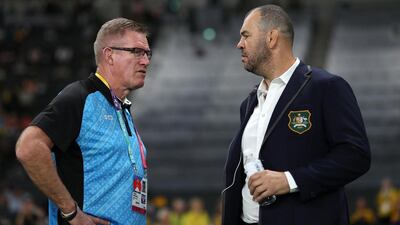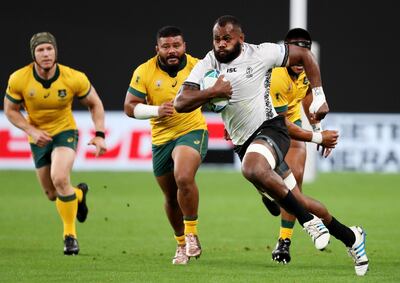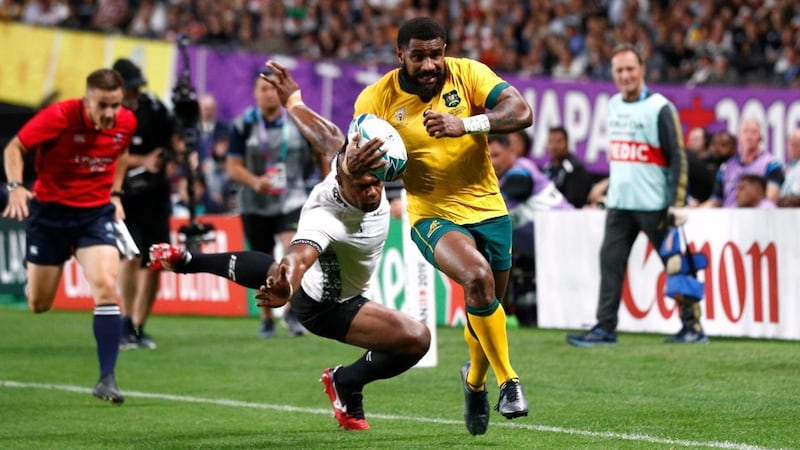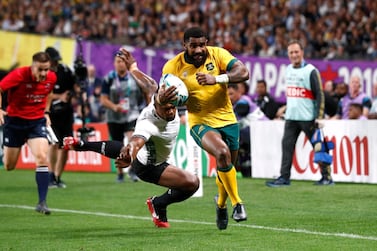It’s been an eventful week for Fiji. How different might it have been had Reece Hodge’s high tackle, which forced Peceli Yato to leave the field injured and then miss the Uruguay game, been spotted?
Hodge went on to score eight points, Australia won and with it have one foot in the quarter-finals.
On top of that, three of Australia’s key players were Fijian. All were key to their adopted team’s success. Isi Naisarani, Marika Koroibete and Samu Kerevi are all world class and born on the islands.
Often the rugby public and media will bang on about how unfair it is so many Pacific Islanders are playing for other nations.
However, back in Fiji there is a very different outlook. It is a source of pride they have been selected for these huge rugby nations, and they support them when they play for them. As long as it’s not against Fiji.
Yes, I’m sure they would like them to still be playing for their country of birth. But it is not something that is ever held against them.
I think that tells you a lot about how the Fijian people are proud of all they produce, not just those who stay and play in the white shirt.
There is no professional team or league in Fiji, so the vast majority will go overseas to play their rugby and earn their money. In my time with Fiji, more than I can write here went from the Fiji sevens team to an overseas contract.
It is a huge move culturally and not without its issues, but on the flip side, it is a life changing shift for not just them but way, way beyond that.
In nearly every case, the majority of their salary will go back to their family and village in Fiji.
The culture is such that when you are young, you get looked after in the village. When you grow up and earn then it’s your time to support others.
Sometimes it can be a bit extreme. I remember a French club that had signed one of our players saying the bank had called them as the player had smashed through his overdraft and was significantly in debt.
They thought he had a drink or gambling problem as a result. I just said to them to go round to his flat and see what was happening.
They did and it was literally a mattress and nothing else. He felt it was vital to send all his salary back to Fiji, and was living on practically nothing - thus the bank calling.
I’ve also been into villages where players have originated that are playing for other teams - not Fiji - and the same thing happens. Even schools and houses have been built using money from their earnings.
Nearly all the players that play for Fiji as well will be in Europe. The way the Super Rugby contracts are set up means if you are not eligible for the nation that clubs resides in then it is very hard to gain or keep your contract. It is unfair as it’s the closest professional league to Fiji.

Sevu Reece, the current All Black sensation, did say publicly he would have loved to play for Fiji. But if he had then he could have lost his Super Rugby contract so he turned down the option. He is still admired and supported in Fiji, though.
Last season two of the Fijian players at the World Cup were spotted by two Australian super rugby franchises and those teams wanted to select them.
Michael Cheika, the Australian coach, found out about this and fearing these players would improve by playing week in and week out in Super Rugby, he contributing to stopping those players going.
Happy to select Fijians for Australia, but when some goodwill is needed the other way, it’s not as reciprocal.
It is a thin line between players going to overseas clubs for their benefit, over some practices that effectively sell them the dream and come up short.
French clubs set up academies in Fiji to recruit, and recently one was set up that effectively was financed by an agency. Their goals are to find players and make money from that.
The cream will always be looked after, and in the case of Yato and Alivereti Raka at Clermont Auvergne, they went to a brilliant club and excelled.
One chose to play his international rugby for Fiji, and the other - Raka - opted for France after fulfilling the residency rules. I don’t have an issue with that at all. Effectively, it’s a form of migration.

It’s the lower level or younger players that often get a rougher ride. The club or agent will play the numbers game. Get half a dozen youngsters, fly them one way to France, chuck them all in a house, and perhaps one or two will make the grade.
This is when homesickness, misbehaviour, and the after effects of selling a dream that never materialises come about.
The Pacific players’ union does a brilliant job to help, but it hasn’t stopped this sort of behaviour from happening.
I’ve heard of a second-hand car being given to a family to help make sure a player goes overseas to that club.
The parents think this is the start of a stream of gifts and money, but it’s all the club were ever going to give. Once the player is signed and over there, then the gravy train gets cancelled.
With all these things, there is plenty of great work being done among the darker decisions.
Thankfully, those bad tales are becoming fewer, as the good news stories of players lives changing positively, slowly soaks over them.
Ben Ryan coached Fiji to Olympic gold in Rio in 2016, and won the Dubai Rugby Sevens four times - twice with England, and twice with Fiji







